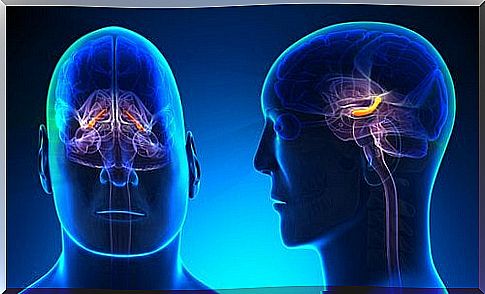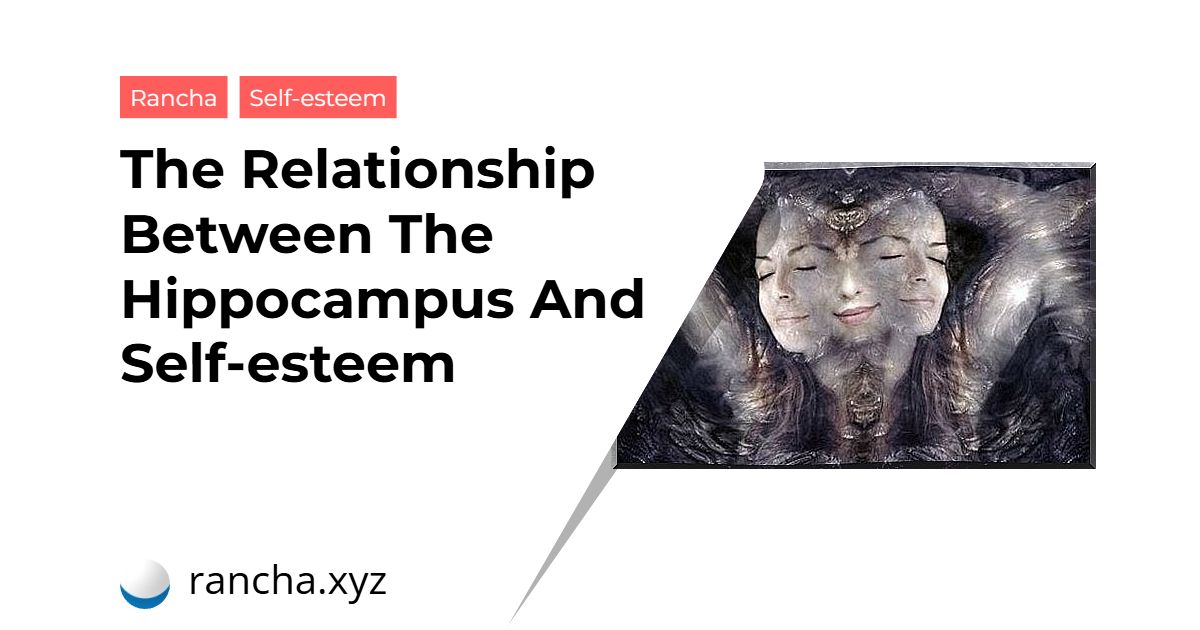The relationship between the hippocampus and self-esteem could not be more interesting. This brain structure has a direct link to our sense of identity, our memories, and the internal narrative we create based on how we see and speak to ourselves. If our self-esteem is weak and we have traumatic memories, the hippocampus will even have a smaller size.
We could say without mistake that, in a matter of neurology, size matters, especially if we refer to a very specific structure: the hippocampus. Giulio Cesare Aranzio, a 16th-century anatomist, called this small region this way because he noticed a certain resemblance to the seahorse.
However, for nearly four centuries no one was able to intuit the relevance that such a structure had in our lives. At first they related it to the sense of smell, and it was not until the beginning of the twentieth century that Vladimir Béjterev discovered its intimate relationship with memory and, above all, with our emotional world.
On the other hand, throughout the 21st century, researchers like Tim Keller of Carnegie Mellon University of Psychology in Pittsburgh have found that some people have a much larger hippocampus than others. Taxi drivers, specialists in spatial memory, are an example.
People who play a sport and who, in addition, use an optimistic approach, in addition to having a firm self-esteem, are another population group with this neurological characteristic. An interesting piece of data that we will delve into below.

How to explain the relationship between the hippocampus and self-esteem?
The relationship between the hippocampus and self-esteem is explained, above all, by its link with a second structure: the amygdala. This small region of the limbic system is especially known for arousing feelings of fear, alarm and threat. In this way, if the amygdala is not constantly activated and works correctly, the hippocampus performs its tasks normally.
Often, when we try to define happiness in a simple way, we always use the same phrase: “happiness is the absence of fear”. We cannot overlook how devastating this emotion can be to our lives and also to the brain. The anguish, the feeling of constant threat, and the experience of feeling helpless create a very harmful neurochemistry that affects, to a greater degree, the hippocampus itself.
Hippocampus, emotions, identity and health
In late 2018, Renming University in China conducted an interesting study to understand the relationship between the hippocampus and self-esteem. Although there was already work on this link, the researchers wanted to obtain more data. To do this, they performed magnetic resonance tests on a large sample of the population:
- Everyone in the study received the Rosenberg Self-Esteem Scale first.
- Later, hippocampal volume was measured using MRI.
- In this way, it was possible to see this association effectively. People with high self-esteem had a hippocampus with greater connectivity and size.
- This data was even more evident when, in addition, a third factor was added: the fact that the person had an active life and exercised.

Low self-esteem, traumatic memories and hippocampus
The relationship between the hippocampus and self-esteem is therefore evident. There is a neural circuit that presents greater connectivity whenever and when the person exercises some basic dimensions on a daily basis:
- Optimism.
- Gratitude.
- Happiness.
- Relaxation.
- Positive self-image.
- Self confidence.
- Relaxation.
- Physical exercise.
But what happens when we have low self-esteem? Well, it must be said that this dimension tends to vary a lot over time. There are times when we feel safer, more confident, days when we appreciate ourselves so much more. At other times, depending on the factors around us, this positive outlook can be weakened.
All of this won’t affect our hippocampus. In reality, this structure is only damaged when a person suffers from post-traumatic stress and has chronic low self-esteem. This fact is very common, for example, in people who were abused in childhood.
In such situations, these evoked memories that are integrated into the hippocampus always have a negative and painful aspect. This feeling of insecurity and negative self-image activates our amygdala. Fear appears again. The sensation of alertness arises, of constant danger. Gradually, cortisol appears in the blood, which can end up harming the hippocampus, reducing its size.
It is, without a doubt, a very striking fact that should make us reflect.
How to strengthen the relationship between the hippocampus and self-esteem?
At this point, we can ask ourselves this same question. How can we strengthen the relationship between the hippocampus and self-esteem? How to take care of this neurological area and this psychological construction?
There is a fact that we must consider. It is not enough to attend to our identity, our self-concept or our self-image. Self-esteem is also related to our internal narrative, that is, the way we talk to ourselves. Doing this with compassion, affection and respect will make us that muscle of our personality much stronger.

On the other hand, there are some aspects that must be taken into account. The good health of the hippocampus, as well as memory and our emotions, also depends on our health. In this way, trying to keep stress under control will directly help us.
Establishing physical and, above all, mental rest times are sensational strategies for daily practice. Let’s start generating changes to gain in well-being.
 rancha.xyz Be free to choose their own route to self-knowledge, health and balance of body and soul.
rancha.xyz Be free to choose their own route to self-knowledge, health and balance of body and soul.




